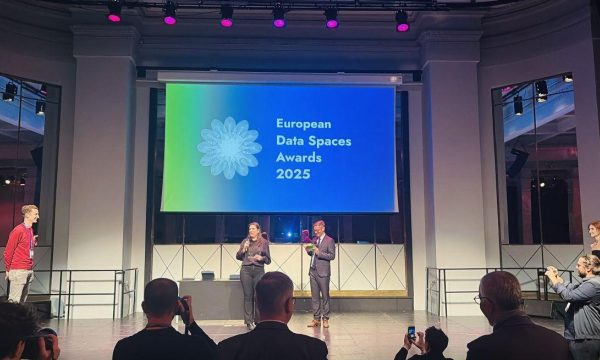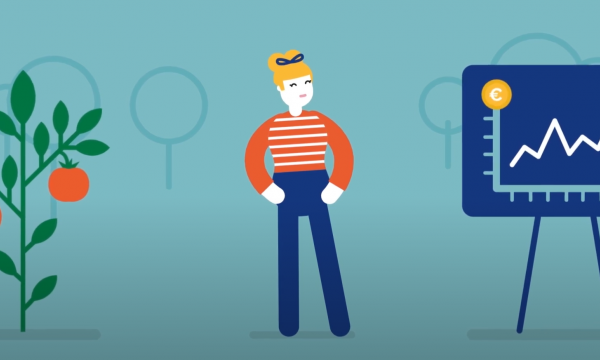Press release Data economy in European agri-food sector gets monitoring tool
Dashboard of 'Data4Food2030 Monitor' was developed under ILVO leadership
Now data-driven developments in the agriculture and food sector can be quickly accessed by anyone via the publicly accessible English-language platform monitor.data4food2030.eu website that came online in May 2025: https://monitor.data4food2030.eu/.
The site is a concrete result of the Horizon Europe project Data4Food2030. ILVO, WUR (Wageningen), Netcompany Intrasoft and Lisbon Council played a pioneering role. 'At least three groups see advancements: agricultural and food companies working with data, policy makers and tech companies.' The platform gathers info around all aspects of the data economy: from technologies used and legal aspects to the more ethical and social dimensions. In addition to clear information sharing and analysis, the platform is also an active exchange site.
Multiple perspectives
The Data4food2030 monitor uses and processes just about all available sources of information to provide an accurate picture of the European food systems data economy: official statistics, information from literature reviews, papers, research projects, automated web data, insights from text mining, as well as input from farmers, businesses, policy makers and researchers. New data are continuously integrated and collaborations with other research projects are facilitated.
The monitor is structured in nine dimensions, including information on the data itself, economic processes, available technologies, legal frameworks, environmental impacts, social shifts and ethical issues.Data-driven innovations are expected to have a profoundly changing - even disruptive - effect on our food system: both the production, distribution and consumption of food, and even the overall economy, society and environment experience impacts. For the impact to be positive, the players involved best base their decisions and digital strategy on reliable, non-commercial information and experiences.
The importance of EU-level monitoring for the data economy of food systems
Knowing what is happening with data sharing in the industry, and changing relationships between the players, it's important:
- For policymakers, to know how to foster that collaboration within resilient, innovative food systems.
- For actors in the food chains, such as farmers, technology companies, food businesses and consumers, to gain insights into the evolving data economy to properly participate in it. This may require collaboration, which can be stimulated by making digital technology more widely available and making European data legislation more understandable.
- For other actors, such as tech companies, who want to take steps in upgrading data in the food system. They must then understand the specifics, needs and practices of the chain.
The monitor helps the three target groups to:
- Identify trends in the digital agri-food market, focusing on interoperability, ethical considerations and the rights to data of end users, such as farmers
- Monitor emerging technologies in agri-food agri-foo;d (e.g., edge computing). It provides an overview of how often certain technologies are used and the status of available digital infrastructure in rural areas
- Get an overview of laws, regulations and compliance related to the data economy for food systems
- Look up initiatives that put data sharing in agri-food at the center (data sharing initiatives), in different countries in Europe, as being examples of the data economy.
The researchers call on all actors involved to explore https://monitor.data4food2030.eu/. 'Organizations should also register your own data sharing initiatives (DSI) so that your approach can be compared with others. We can then uncover bottlenecks faster and cooperation can be strengthened between projects, sectors and industries.' Actively contributing to the platform will enrich the scientific knowledge base of stakeholders, and stimulate innovation in Europe's food systems.
Project Coordinator
Mireille van Hilten - Stichting Wageningen Research (WR) - Nederland T: +31 703 358 337 - mireille.vanhilten@wur.nl
Project Communication
Grigoris Chatzikostas - Reframe.food - Greece T: +30 697 933 6374 - gchatzikostas@reframe.food

Funded by the European Union. However, views and opinions are solely those of the author(s) and do not necessarily reflect those of the European Union or Research Executive Agency. Neither the European Union nor the granting agency can be held responsible for them.



